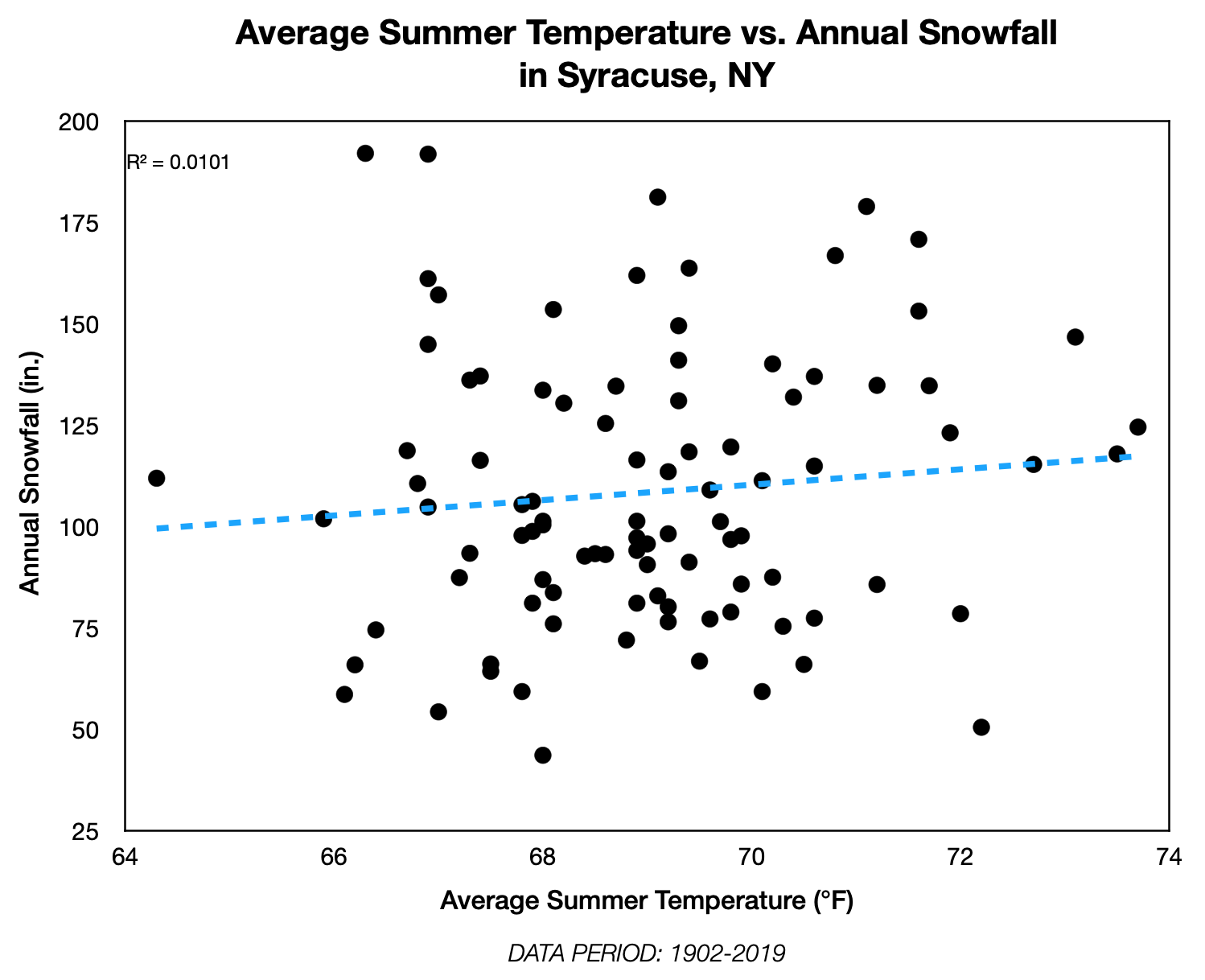One of the questions I am asked most often this time of year is, “Carson, this summer was so hot, so I bet this winter is going to be bad, right?”
The roots of this question aren't entirely clear. Perhaps the thought that warmer lake temperatures could lead to more lake-effect snow, or even the expectation of a total pattern flip to the opposite extreme from summer to winter.
After all, we just finished the third-warmest summer on record here in Syracuse, so let’s take a deep dive and see if there is anything to this thought.
I took the average summer temperature going back to the beginning of record-keeping here in Syracuse and compared those readings to the total snowfall seen from July 1 of the same year to June 30 of the next year, accounting for all possible seasonal snowfall. Years with incomplete snowfall records were removed as to not contaminate the data analysis.
When comparing the average summer temperature to the winter snowfall that follows, there is not really a case to be made in terms of a correlation.
In other words, a hotter summer statistically does not produce more snowfall when looking at the general trend of both factors. If there were a correlation, the blue trend line in the graph would be more steeply trending upward; instead, it is pretty flat.

Here's a little statistics refresher: note the r-squared value in the upper-left. This is known as the coefficient of determination. Simply put, this value ranges from 0 (no correlation) to 1 (strong correlation).
Thus, our coefficient of determination is close to zero, so one cannot say with any mathematical confidence that a relationship exists between hotter summers and subsequent snowier winters in Syracuse.
Let’s examine these data in another way.
- 2005 to 2006 season: 124.6 inches of snow
- 1949 to 1950 season: 118.0 inches of snow
- 1955 to 1956 season: 146.8 inches of snow
- 2012 to 2013 season: 115.4 inches of snow
Say we take the other four of the top five warmest summers, and look at how much snowfall we saw the following winter compared to average.
Averaging the snowfall out among the four winters, we arrive at 126.2 inches. The average snowfall in Syracuse annually is 123.8 inches.
Not that this is a completely accurate predictor given the small sample size in this experiment, but using solely the summer warmth we just experienced, an average amount of snowfall could be expected, give or take just a few inches.
In general, there isn't evidence to support the thought that hotter summers produce snowier winters. Could there be a connection between summer warmth and a milder winter, however? That's a topic to be explored in a future blog post. Stay tuned.



